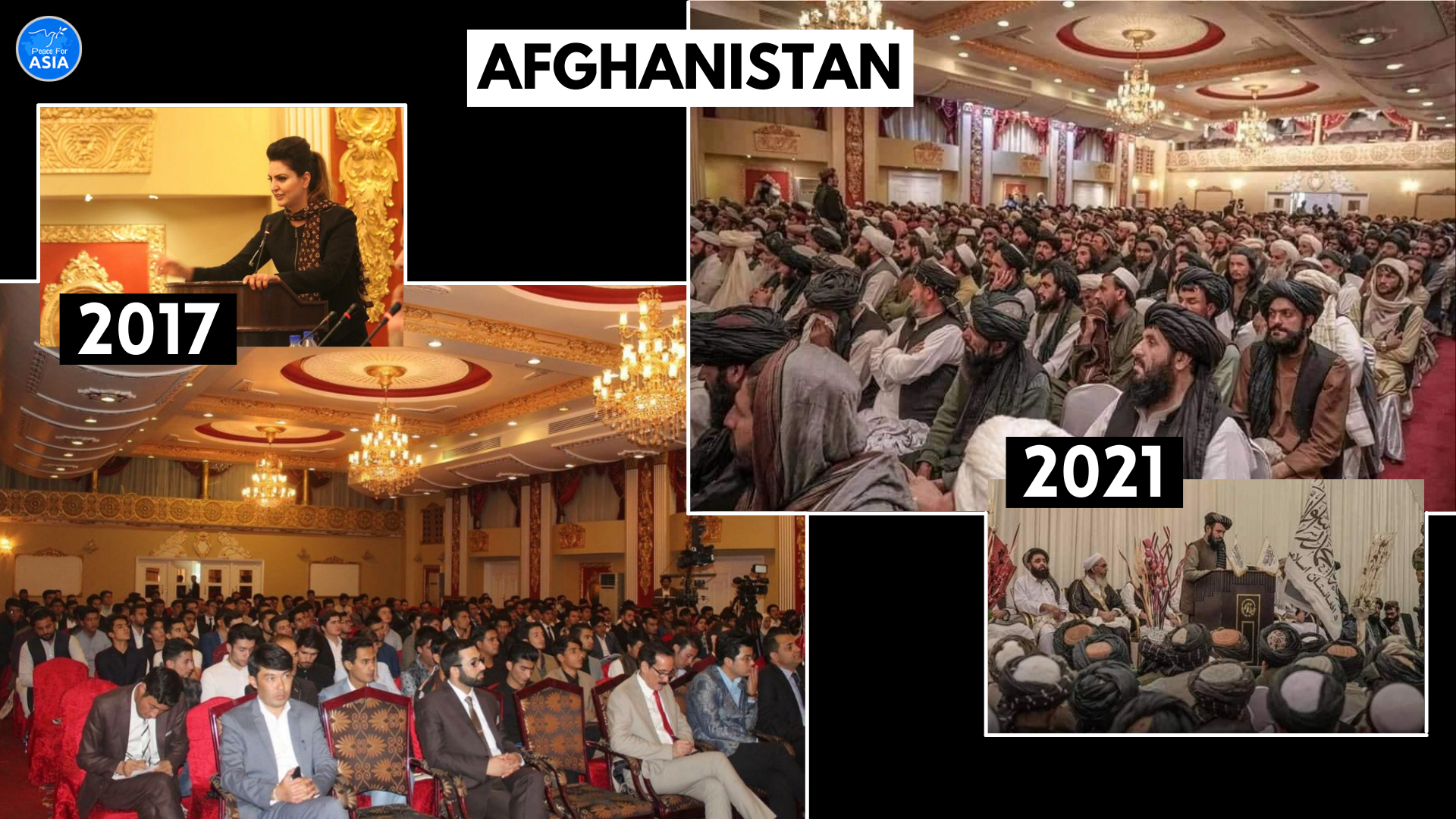This short photo-essay by our Peace Ambassador Rita Anwari reminisces her visit to Afghanistan in 2017. The post 9/11 phase leading up to August 2021 was market by certain complexities and challenges, when the commitments by the international community to uphold Afghanistan’s democratic institutions and processes. Back then, one could hope that the Afghan society was steadily moving towards achieving inclusion in some, if not all sectors of social development, education being one of them. The Taliban’s ongoing onslaught on the country’s education infrastructure threatens to take Afghanistan back to the same phase where it was two decades ago.
In 2017 I travelled to my home country, Afghanistan, after 25 years of living and working in Australia. Being the first woman to launch a higher education program by Australian standards for young Afghan women and men, my aim was to enable and empower the future leaders of Afghanistan through the power of education. As seen in these photos, a vibrant and diverse audience attended the seminar in 2017 and are listening intently and patiently because we understood how access to higher education and opportunities leads to good governance and cooperation.
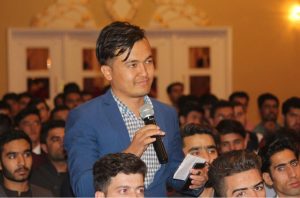
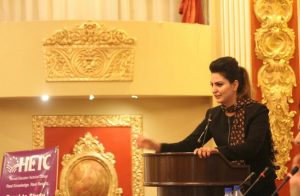
Dr. Rita Anwari interacting with students at the seminar held in 2017.
A picture is worth a thousand words, and in the short span of four years, the same room is occupied by a regime that aims to silence the young people in Afghanistan. The Taliban regime has targeted the entire education system in Afghanistan, including students and teachers. The same chairs that were once occupied by young and budding leaders of the future are now replaced by conservative men who have endorsed violence on their own civilians for over two decades. Unfortunately, the events seen on the 19th October 2021 demonstrates this. Members invited and sitting in this room today include fathers’ of suicide bombers who endorse their families and sons to become an enemy and kill their own people.
The images attached here showcase a regime that includes the same people who attack our schools and target universities with explosions and suicide bombings. Between 2018- 2021, over 200 attacks have been reported on schools and higher education buildings especially in Kabul university and students. If we focus from the beginning of 2021, these attacks have predominantly targeted girls’ education, teachers and personnel. This has impacted education in Afghanistan over the years and makes it difficult for students, especially girls, to attend school and continue further education. As a result, the regime comprises mostly of uneducated supporters who did not have access to further their education due to the very lack of opportunities.
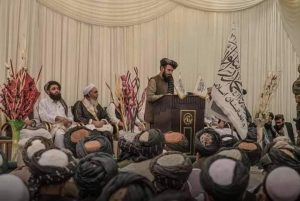
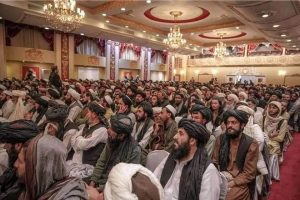
The Taliban holding discussions in the same room in 2021.
I now leave it up to you to decide your own judgement, yet ask you to consider how hindering education for young women and men who make up the future of Afghanistan runs the risk of continuing the Taliban regime. The future of Afghan girls and women is dependent on us around the world, who must stand by their side and support them. Indeed, we face challenging times, but we should look at this phase as an opportunity where the diaspora, universities, Humanitarian Aid Organizations, International Rescue Committees, foreign policy research institutes across the world could join hands to exercise pressure on the Taliban.
While a robust long run program is yet to evolve, one short-run initiative of doing so is through international scholarship programs and opportunities that enable young people to gain access to quality higher education. By focusing and ensuring this access, we can empower the daughters and young women of Afghanistan to be strong independent women who are leaders in their country.
Images by author.

